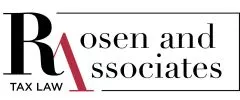What is a Tobacco Information Return?
Form B285, otherwise known as a Tobacco Information Return, is a return that must be filed monthly by an individual designated as a prescribed person under the Stamping and Marking of Tobacco, Cannabis and Vaping Products Regulations, pursuant to the Excise Act.
Who is a Prescribed Person & How Do I Become a Prescribed Person?
As outlined in the Excise Act, an individual is designated as a prescribed person in one of the following two ways:
- Importing Tobacco Products: an individual imports tobacco products which will become part of the Canadian duty-paid market, and at all times meets the requirements outlined in paragraphs 2(2)(a) – (e) of the Regulations Respecting Excise Licenses and Registrations, while also posting security in both the amount and form satisfactory for the Minister. If satisfied, this person is allowed to both purchase and possess excise stamps which can be applied to tobacco products before they are imported into Canada; or
- Transporting Excise Stamps: an individual who
transports excise stamps on behalf of either:
- A person who is a tobacco licensee; or
- A prescribed person that is able to import tobacco products into the duty-paid market; or
- If the authorized CRA stamp provider has been deemed as a prescribed person
This individual is also allowed to possess excise stamps; however, they are limited to possessing the stamps for the purpose of transporting them on behalf of, or to, any of the three parties listed above.
To become a prescribed person, an individual must either import tobacco products or transport excise stamps. The application process involves the following:
- For Importers: a person who imports tobacco
products:
- Must submit a letter to the regional excise officer:
- With a formal request to be prescribed;
- Outline their intended operations/scope of activities;
- Provide a list of locations where the stamps will be shipped;
- List the address of where all records will be maintained;
- Provide the stamp denominations;
- Provide the type of tobacco product that will be imported;
- Provide an estimate of volumes likely to be imported annually;
- Provide an explanation of how they meet paragraphs 2(2)(a)-(e).
- Must submit a letter to the regional excise officer:
- For Stamp Transporters: a person who
transports excise stamps:
- Must maintain documentation to support that they were in possession of stamps and doing so on behalf of a tobacco licensee, an authorized stamp provider, or a prescribed person who imports tobacco to the duty-paid market.
Completing a Tobacco Information Return
It is important to remember that when you complete Form B285, you must only provide the information that is applicable to the reporting period in which you are filing and completing the form for.
Part A: Type of Return
For returns being filed for a reporting period where you have already submitted a return, an individual must select "amended". For all others, select "original".
Part B: Business Information
This section requires individuals to provide:
- Business Information: both the legal name, and account number the return is being filed for.
- The Location of Books and Records: an individual must provide the address of the location where the books and records supporting the information in the return are located.
- Reporting Periods: an individual must provide both the start and end dates of the calendar month the filed return relates to, or the start and end dates are applicable.
Part C: Tobacco Excise Stamp Inventory
The inventory of tobacco must be reconciled for the reporting period and is based on stamp denomination. This section of the return is further broken down into six additional columns. These columns require the following information:
- Column A – Opening Inventory
- For applicable denominations, the opening stamp inventory must be reported. This opening amount must be equal to Column F of the previous return (closing inventory).
- Column B – Stamps Received
- For applicable denominations, the amount of stamps received from the tobacco excise stamp provider must be recorded. A stamp is "received" when it arrives at the prescribed persons delivery location or adhesive supplier.
- Column C – Stamps on Products Imported
- For applicable denominations, the amount of stamps on tobacco products imported during the applicable reporting period.
- Column D – Destroyed Stamps
- For applicable denominations, the total number of stamps destroyed during this reporting period must be recorded.
- Column E – Inventory Adjustments (+ or
-)
- 1. For applicable denominations, record adjustments to balance the physical and book inventory.
- Column F – Closing Inventory (A+B-C-D
+/-E)
- 1. Add columns A and B, subtract columns C and D, and add or subtract columns E, calculating the quantity to be inputted in column F.
Part D: Certification
Only those individuals authorized can sign, and date a tobacco information return. This person must also provide the best contact information so that they can be contacted about anything included in this return.
Conclusion
Completing the Tobacco Information Return Form B285 accurately and on time is crucial for compliance with the Excise Act. Whether you are importing tobacco products or transporting excise stamps, adhering to the detailed reporting requirements ensures transparency and facilitates regulatory oversight. By following the outlined steps, you can maintain proper records, avoid penalties, and contribute to the smooth administration of tobacco excise duties.
The content of this article is intended to provide a general guide to the subject matter. Specialist advice should be sought about your specific circumstances.



